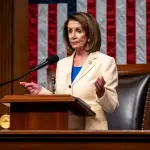Israel’s top defense official has made it abundantly clear that the nation’s military forces are gearing up for a “swift transition to offense” as tensions with Iran continue to simmer. This bold declaration comes on the heels of worries that Tehran could retaliate for the recent assassination of Hamas leader Ismail Haniyeh. As Israelis brace for a potential confrontation, Defense Minister Yoav Gallant reassures the Air Force that their strength and capabilities are being closely scrutinized by their adversaries.
Amid a backdrop of high-stakes drama, Iranian officials are reportedly crafting their response to Haniyeh’s demise, which occurred in the Iranian capital. This assassination has not only highlighted Israel’s resolve but has set the stage for a possible counterstrike from Iran, sparking scenes reminiscent of bad spy thrillers. Just months earlier, an unsuccessful missile barrage directed at Israel showcased the increasing tensions and the very real threats that Israel faces from Iranian territory.
Washington Examiner: Israel’s ‘resilience being tested’ as civilians wait for Iran’s attack https://t.co/a5lU1pU82g
— Ian’s Newsfeed 🇺🇸🇺🇸 (@IanHNewsFeed) August 5, 2024
Iran’s own military elite are keen to show off their bravado, with remarks emphasizing the seriousness of their intentions. However, the reality is that while these threats may be foreboding, they often reveal more about the adversary’s anxiety over Israel’s capabilities than of any impending danger. Still, the U.S. and regional allies have jumped into action to tackle this powder keg situation as Secretary of State Antony Blinken emphasizes the need for de-escalation, as if that has ever worked with Iran.
The Israeli Prime Minister, Benjamin Netanyahu, is projecting strength, declaring a heavy price will be exacted on anyone who dares to harm the nation. Yet, not everyone is convinced, as evidenced by opposition leader Yair Lapid’s scathing critique of the current administration’s handling of the security situation. Lapid claims that the government’s response has lacked efficacy, and the people of Israel are growing restless, left in limbo while Iranian proxies ramp up their hostile activities.
In this tense climate, social cohesion is becoming a rare commodity. As President Isaac Herzog notes, the public’s resilience is being tested, coupled with a palpable sense of anxiety that hangs over the nation like a heavy cloud. With calls for restraint and unity, one can’t help but wonder if that is even a possibility as dissent grows louder and bolder.
Amidst this chaos, Netanyahu’s position appears precarious, particularly with the ongoing political tensions that threaten to shake the government to its core. Speculation abounds that he may consider firing Gallant amid a backdrop of dissatisfaction and concerns about national security. With Lapid’s fiery rhetoric claiming that the nation has been waiting too long to act, it seems that the only certainty in a land filled with uncertainty is the inevitable political fallout as leaders scramble to juggle national interests and their own job security.




